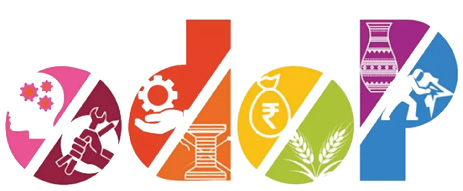The aim is to turn each district into a manufacturing and export hub by identifying products with export potential within them.
The “One District One Product” initiative is a transformative step towards achieving the goal of Aatmanirbhar Bharat, by driving economic growth, creating employment and rural entrepreneurship opportunities. India is a home to a variety of products that are specific to each region and provide people with sources of income. These include both agricultural and non-agricultural products, such as manufacturing, which are unique to each district. From ancient, nutritional crops and their by-products to rare and exquisite crafts, renowned embroidery work, sophisticated horn and bone art, and environmentally friendly alternatives to ivory, India offers something for everyone.
CAPITALIZING THE RICH CULTURE OF INDIA
The goal of the ODOP scheme is to make these products more accessible, providing employment opportunities for those who have dedicated themselves to preserving them. The scheme has been integrated with the “Districts as Export Hub (DEH)” program of the Directorate General of Foreign Trade (DGFT) and Department of Commerce, with the Department for Promotion of Industry and Internal Trade (DPIIT) as the primary stakeholder.
The aim is to turn each district into a manufacturing and export hub by identifying products with export potential within them. For this purpose, institutional mechanisms in the form of State Export Promotion Committees (SEPCs) and District Export Promotion Committees (DEPCs) have been set up in 36 states/union territories to support export promotion and address any obstacles that stand in the way of export growth in the districts.
EXPORTS JUMP THREE TIMES WITH ODOP
In the past few years, various indigenous crafts and products made at a district level in different states under the “One District One Product” (ODOP) scheme have gained great popularity both domestically and internationally. According to the data released by SBI Research, exports of almost 16 states have trebled due to this initiative. These states include Andhra Pradesh, Bihar, Chhattisgarh, Gujarat, Haryana, Himachal Pradesh, Jharkhand, Karnataka, Madhya Pradesh, Maharashtra, Punjab, Rajasthan, Sikkim, Telangana, Uttar Pradesh, and West Bengal.
In the fiscal year 2021-22, Gujarat led the exports tally with $126,805 million, up from $27,159 million in FY19. Maharashtra was second in line with $73,120 million exports during FY22, compared to $22,986 million in the previous financial year.
The Uttar Pradesh government’s data revealed that the total worth of ODOP exports from the state went up from Rs 58,000 crore in FY17-18 to Rs 96,000 crore in FY21-22. It is estimated that ODOP products make up approximately 62% of Uttar Pradesh’s total exports. Through the ODOP-DEH program, export potential products and services have been identified in 733 districts across the country, including agricultural and toy clusters and Geographical Indication (GI) products. Toy manufacturing clusters have been identified in almost 12 districts in India.
The ODOP initiative has tremendous potential due to its objective of achieving a district’s true potential through economies of scale, product specialization via identification and promotion via marketing, MSME growth, and job creation. The ODOP initiative is attempting to raise awareness of its products and the advantages of buying them in domestic and international markets. This offers a chance to reinforce local products with health, environmental, or other beneficial characteristics. This will assist India in becoming a stronger economy and fulfilling the Prime Minister’s vision of becoming truly Aatmanirbhar. Open Network for Digital Commerce (ONDC) is a network based on open protocol which will enable local commerce across segments by network-enabled application. It will create new opportunities, curb digital monopolies. Hence, looking holistically, the small businesses of India have a bright future ahead such as small and medium enterprises.
The author is the secretary general of apex trade association, ASSOCHAM.

